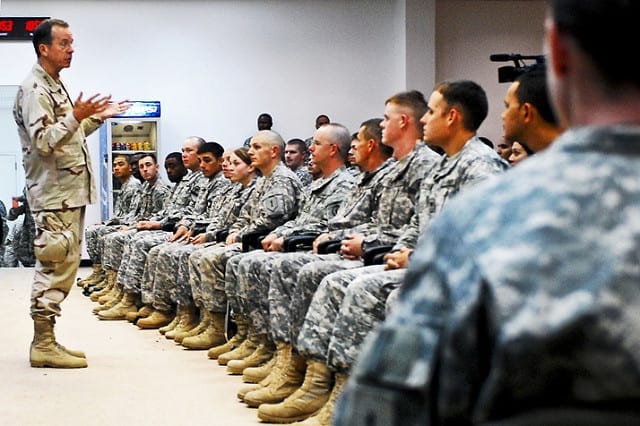We Need to Talk- Communication is Key
The words of Nehemiah the son of Hacaliah. Now it happened in the month of Chislev, in the twentieth year, as I was in Susa the citadel, that Hanani, one of my brothers, came with certain men from Judah. And I asked them concerning the Jews who escaped, who had survived the exile, and concerning Jerusalem. And they said to me, “The remnant there in the province who had survived the exile is in great trouble and shame. The wall of Jerusalem is broken down, and its gates are destroyed by fire.” As soon as I heard these words I sat down and wept and mourned for days, and I continued fasting and praying before the God of heaven. (Nehemiah 1:1–4)
Communication is necessary to evaluate your circumstances following a deployment
“We need to talk.” No one would argue that communication is a key ingredient to a healthy marriage, but prefacing a conversation with these four words can cause dread in the most talkative spouse. Effective communication is not an innate skill, but something we must learn. Research verifies the importance of communication in building and maintaining marriage relationships. Research has also shown that reestablishing communication is one of the challenging hurdles couples must face during reintegration and post-deployment.1
 Just consider the on-going practice of OPSEC (Mission Operational Security) during a deployment. As a couple, you may have communicated regularly via text, email, or video-chat, but there were things your military husband could not discuss. Moreover, you may have kept some information from your husband that you did not want to worry him about during his deployment. If not addressed, these protective practices could become a pattern of keeping secrets after reunion.
Just consider the on-going practice of OPSEC (Mission Operational Security) during a deployment. As a couple, you may have communicated regularly via text, email, or video-chat, but there were things your military husband could not discuss. Moreover, you may have kept some information from your husband that you did not want to worry him about during his deployment. If not addressed, these protective practices could become a pattern of keeping secrets after reunion.
Nehemiah 1 offers an example of healthy communication. Some Jewish leaders came to Nehemiah and said, “We need to talk.” They gave an assessment of what was going on in Jerusalem. The need for repair and restoration was significant both for the people and for the city. Nehemiah listened with empathy to their assessment about the city. Honest communication motivated him to set a goal to improve the situation.
Honest communication motivated him to set a goal to improve the situation
Communication is necessary to evaluate your circumstances following a deployment. Guard yourself from glossing over reality and succumbing to the “I’m fine … Everything is fine …” defense. Communicate with your spouse. Give each other space to offer an assessment of how things have been and express what needs to happen to rebuild your family. Ask God to give you an empathetic heart to understand your spouse’s needs.
Nehemiah also went to the Lord and said, “We need to talk.” The pain the remnant experienced moved him to pray and fast on their behalf. The issues caused him personal pain, but he did not focus on himself and the effect the news had on him.
Be assured you too can come to the Lord and say, “We need to talk.” God is ready and willing to listen.
Respond
In what ways have you become more aware of your spouse’s needs since deployment and reintegration? Has communication with your spouse become better or worse since deployment or reintegration? How have you seen this demonstrated?
Prayer for the Journey
Father, I pray today for improved communication between my husband and me. Teach us to listen to one another—to be slow to speak and quick to hear. Amen. (See James 1:19)
1 Steven L. Sayers, “Family Reintegration Difficulties and Couples Therapy for Military Veterans and Their Spouses,” Cognitive and Behavioral Practice 18, no. 1 (February 2011): 110, http://psycnet.apa.org/psycinfo/2010–15791–001, (accessed March 6, 2015).




